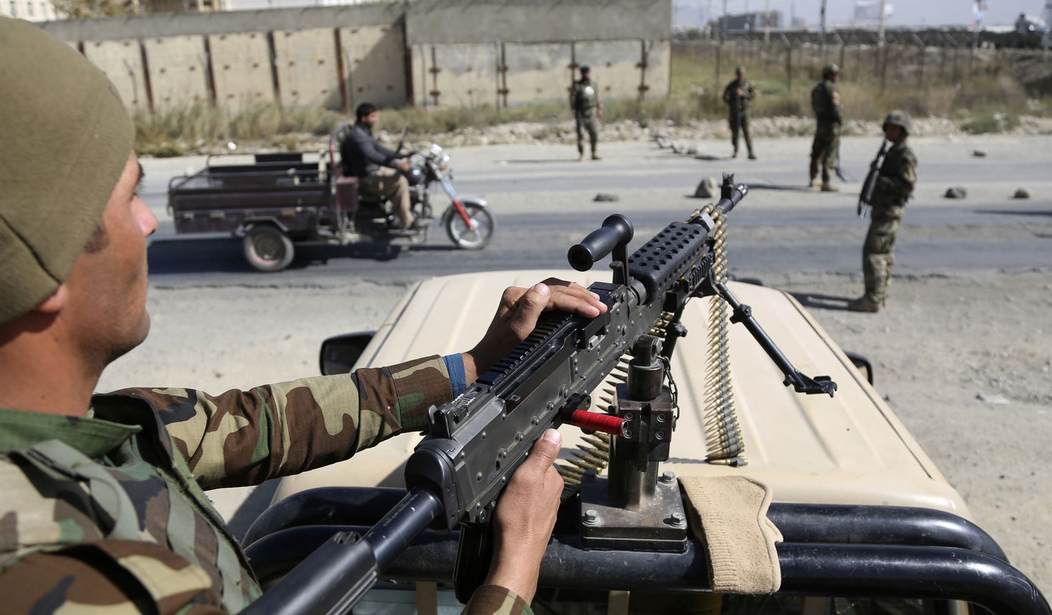May 1st is being described as the beginning of the end of America’s “forever war” in Afghanistan. But as a new report from the Associated Press points out, the pieces on the board have been in motion for months. Huge C-17 Globemaster cargo planes have been loading up with equipment and returning to the United States since the beginning of the year. Hundreds of troops have rotated out of the country in recent months without being replaced. Much of the work currently being done involves taking an inventory of all of the equipment and supplies we have in the country. Some of it is being sent back stateside, with other items either being given to the current Afghanistan government or simply being put up for sale in public markets. The main “commodity” that can’t be exported is the people, however.
The final phase of ending America’s “forever war” in Afghanistan after 20 years formally began Saturday, with the withdrawal of the last U.S. and NATO troops by the end of summer.
President Joe Biden had set May 1 as the official start of the withdrawal of the remaining forces — about 2,500-3,500 U.S. troops and about 7,000 NATO soldiers.
Even before Saturday, the herculean task of packing up had begun.
What the current administration and our military leadership seem loath to discuss is the fact that we still don’t have a finalized deal with the Taliban. There was plenty of negotiating going on, but nothing definitive was agreed to and even the nominal leadership of the terrorist group never really controlled all of the militants scattered across the country. A Taliban spokesperson told the AP this week that they have never promised not to attack U.S. and NATO forces as they are bugging out and the group’s leadership was still “mulling over their strategy.”
That same spokesperson is quoted as saying “We are telling the departing Americans … you fought a meaningless war and paid a cost for that and we also offered huge sacrifices for our liberation.” In other words, the Taliban is already declaring victory and preparing to take over as has long been predicted. While the United States and our allies have lost more than 3,500 troops since the start of the war, the Afghani government forces have seen upwards of 70,000 troops killed.
At this point, the Taliban is believed to control more than half of the territory in the country. When the last allied troops are out of Afghanistan, chaos is obviously going to take hold. I would be totally shocked if the current, US-backed government in Kabul lasts until the end of the year. But that brings up the biggest question in terms of our remaining responsibilities. What happens to all of those government officials who cooperated with the Americans and our allies? What happens to the troops that ostensibly fought on our side? (Though many traitors were discovered among their ranks over the years.) Far more critical is the question of what will happen to the scores of translators, messengers and other day-to-day workers who were regularly seen working directly alongside the Americans.
Those people are going to be slaughtered by the Taliban if they are left behind. I would love to find out that all of those planes flying out of the country have been whisking those Afghani allies to safe-havens, and perhaps some of that has been going on. It’s obviously not the sort of thing that we would advertise publicly. But given our track record in Iraq and other troubled regions, I’m not particularly confident that we’ll manage that feat.
I supported our invasion of Afghanistan and the hunt for Osama bin Laden and despite the massive cost I don’t regret doing so. But once OBL was on the bottom of the sea, we should have begun the process of packing up and preparing to leave immediately. Afghanistan was never going to undergo some fundamental, societal change and turn into a flowering bastion of democracy and freedom. The country still exists in the dark ages in many ways. They’ve been invaded before and they’ve always outlasted the foreign forces eventually. In hindsight, it was never going to end any other way. It’s time to go home and leave the people of Afghanistan to figure out their own path forward.








Join the conversation as a VIP Member